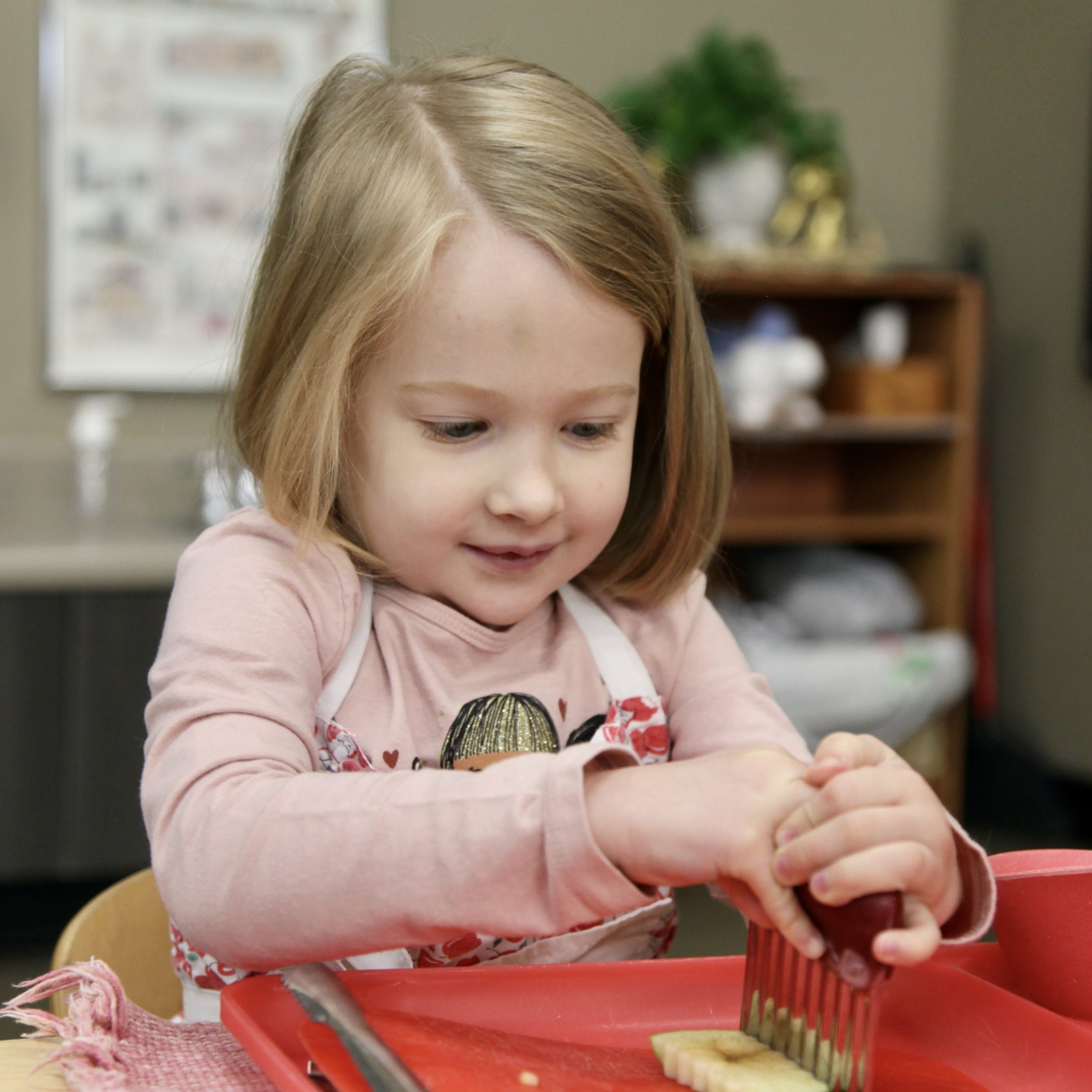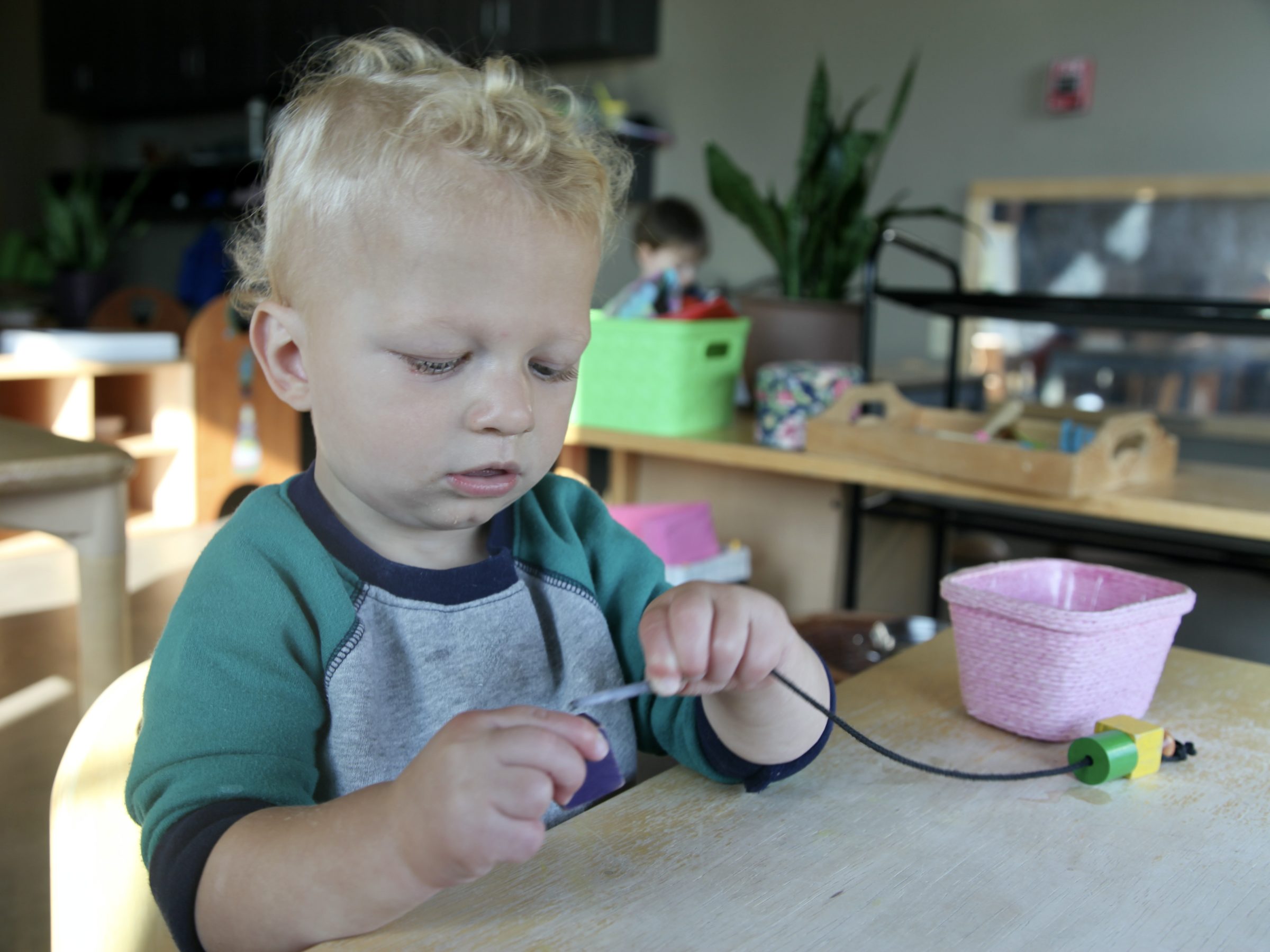Learning Problem-Solving
Thoughts & Reflections
Why don’t we always help? If we see a child struggling with something, it’s so natural to jump in and help, from a place of love or from a place of timeliness or from a place of frustration, it’s what we do. For a child’s earliest days, they needed us to do things for them, and now as they’re creating those same skills themselves, it’s not a light switch we can just turn off.
But what about academics, or skills in the classroom? Shouldn’t we help with those? How else will a child learn to do it the right way?
In this video, a child is completing the Map of Europe. There are a lot of pieces, and she’s not very old. This is big stuff!
It would be easy for us to hop in and make some suggestions. Even if we weren’t going to do it for her, even if we knew how important it is for her to do it herself, it would be natural to give a hint or two.
Just turn that one.
Two pieces of the same color don’t touch.
Yeah, that one goes there, but you keep knocking it out with your finger.
We’re so well-intentioned, but we sometimes miss the mark. She’s not one bit frustrated. She’s not upset or tired of this. When a piece doesn’t fit, it doesn’t bother her, it only bothers us.
Children are always learning. When I correct a child or fix it for them, they’re learning to ask for help, they’re learning I’m an expert at this, they’re learning we’re always here to support them and we can be counted on. They might also be learning to trust us more than they trust themselves, that they’re not really capable, and that if something doesn’t come easily it must be impossible.
When I don’t jump in and help, they’re also learning. They’re learning they’re capable, hard things are good things, that nothing is impossible. They’re learning task-persistence and when they might actually need to ask for help. Just a little bit, then you’re off. They’re learning problem-solving. Let’s try this. Nope, not quite, how about… a ha!
“We’re so well-intentioned, but we sometimes miss the mark. She’s not one bit frustrated. She’s not upset or tired of this. When a piece doesn’t fit, it doesn’t bother her, it only bothers us.”
There will be times when we need to just figure it out, when there might not be someone to ask , when just a bit more effort means we can complete something independently. Problem-solving is one of those skills that is an indicator of later success. It’s self-efficacy: knowing I’m capable.
Sometimes problem-solving is fixing something myself. Sometimes it’s knowing who to ask for help. We support it by not always jumping in. We’re here to help if you need it.
Written by:
Charlotte Snyder



